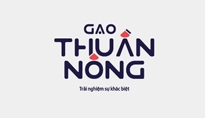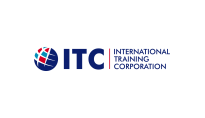

Mr. Hieu believes that the restructuring plan for this period is essential in order to change the foundation of the entire plan and lead to more substantial development for future growth.

JOURNALIST: - Sir, is the plan to restructure the economy for the period 2021 until 2025, that has been submitted to the National Assembly this time, to be evaluated as an adjustment in thinking and approach in the new context?
Mr. PHAN DUC HIEU: - First of all, these plans all have in common the same goal of socio-economic development of the country. Specifically, creating changes in the way the economy is run, in order to improve the efficiency, productivity, and competitiveness of the economy. Rather, new content is added on the basis of new thinking and approaches, but not completely different, but overlapping. For example, the socio-economic plan includes the content of restructuring the economy, the task of economic recovery, and maintaining production and businesses.
In terms of approach, the plan is based on the unification of awareness and thinking about restructuring the economy, avoiding the case that the economic structure follows a movement, which is a formality without substance. The approach is not only to restructure the proportion of the economic sector, the proportion of industry, agriculture, and services, but also which areas and which entities have the most efficient use of resources, and opportunity to access necessary resources, in the fastest, timely, and fully efficient manner.
Thinking to restructure the economy this time is to create fundamental changes, to change the way the economy is run, to focus on the mechanism of resource allocation, so that resources are allocated efficiently and at a low cost, for the right projects, in the most efficient and fastest manner.
- Sir, can you tell me more about the tasks in this economic master plan?

- In general, some tasks of economic restructuring were still necessary and unfinished in the previous period and need to be continued. In addition, the context has changed, resulting in new requirements to adapt to. For example, the impact of the Covid-19 pandemic and changes in international economic relations, the 4.0 revolution and the new economic trend for sustainable development. It should also be added that restructuring is a regular thing, aimed at higher goals and adapting to changing contexts and new situations.
The socio-economic restructuring plan for the period 2021 until 2025 will include some uncompleted tasks from the previous plan. Firstly, the implementation of the task group to restructure three key areas, including public investment, state-owned enterprises (SOEs), and credit institutions, although being implemented more substantively, has not been completed according to the set target. Secondly, the implementation of the task group to restructure the state budget and public non-business units still has some shortcomings. Thirdly, the implementation of the task group to develop the domestic private sector and attract foreign investment has some limitations.
The socio-economic development strategy and plan for the period 2020 to 2021 takes reform and improvement of the quality of socialist-oriented market economy institutions to be a prerequisite to promote the development of the country. It requires a full, synchronous, modern, integrated, and effective law enforcement plan.
This strategy focuses on three major breakthroughs. First, continue to perfect and improve the quality of the socialist-oriented market economy institution fully and synchronously, focusing on market factors of production, especially the market for land use rights, science, and technology.
Second, continue to comprehensively develop human resources, science, technology, and innovation. Third, continue to perfect a synchronous and modern socio-economic infrastructure, strongly develop digital infrastructure, build and develop national, regional, and local data infrastructure connected to the Ministry, and also create a foundation for the development of digital economy and a digital society.
New development practices and requirements show that human resources are more important than ever. In theory, human resources are important and are the foundation for transformation and change management. In the new context, simple and cheap labor, which is an advantage for attracting investment, gradually becomes a bottleneck for growth and development. The reality and international experience in the new growth model also shows the need and requirement to improve the quality of human resources, especially retraining human resources and improving the qualifications of existing and future human resources.
The impact of the Covid-19 pandemic, along with the recent wave of labor migration and the recent situation of both surplus and shortage of labor, shows that the issue of labor resources is more important than ever, not only in quality but also in the ecosystem, as well as accommodation and living environment of workers.
Another important focus of this plan is to complete the objectives of restructuring the system of credit institutions, state budget, public investment, public non-business organizations and developing various types of markets and improving the efficiency of distribution and use of resources such as the labor market. In the draft economic restructuring plan, the labor issue mentioned the second focus on developing markets.
However, the problem of labor resources is not only labor relations, labor supply, demand, and training quality, but also greater solutions to be more comprehensive, long-term, and strategic. This may include policies on economic, educational, and social infrastructure development such as planning, social housing, industrial parks, regimes, and policies for employees suitable to the new context. Labor resources must be a focus, and also must be considered a pillar in the content for this economic restructuring plan.
- Thank you very much.
LUU THUY (interviewer)

Điện thoại: 0909.140.866
Email: info@irrmanagement.com.vn







